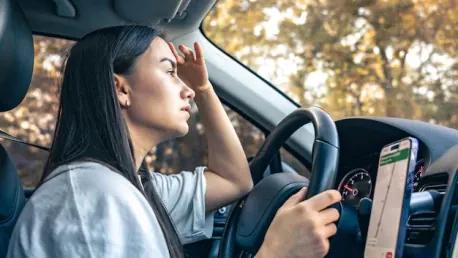With the pressing need to address both law enforcement accountability and road safety, the Iowa House of Representatives took significant legislative actions by passing two noteworthy bills. These measures have sparked considerable debate and garnered bipartisan voices, both in support and opposition. Furthermore, these legislative actions convey a commitment towards refining the state’s regulations in terms of immigration enforcement and driving safety. The following sections delve deeper into the specifics of these legislative decisions.
House File 946: Enforcing Immigration Laws
House File 946, a bill introduced by Iowa Rep. Steven Holt, is designed to mandate law enforcement officers, including elected sheriffs, to comply with immigration laws or face the risk of decertification. With a vote of 61-35, the bill successfully passed, though it encountered some bipartisan opposition, notably from three Republicans. The bill entails the Iowa attorney general investigating officers who intentionally fail to adhere to immigration laws, and if found in violation, these officers will be given an opportunity to amend their actions. In instances of repeated non-compliance, it mandates that the Iowa Law Enforcement Academy Council offers decertification recommendations.
The latest version of House File 946 represents a softened approach compared to its previous iteration which initially suggested a Class D felony conviction and imprisonment for violators. Holt asserted that this amended provision strikes a balance by holding law enforcement accountable without imposing unduly harsh penalties. However, the bill faced criticism from Iowa Rep. Lindsay James, who voiced concerns about it undermining the autonomy of local law enforcement and straining already limited resources.
This piece of legislation aims to ensure that law enforcement duties in Iowa are more closely aligned with federal mandates while promoting accountability within the police force. The implications of this bill are expected to generate ongoing discussions regarding the practicalities involved in implementing stricter immigration enforcement procedures and addressing the concern of overburdening local jurisdictions.
Senate File 22: Prohibiting Handheld Device Use While Driving
In another significant legislative move, the Iowa House also passed Senate File 22, a bill that seeks to curb the use of cellphones or electronic devices while driving, unless operated in hands-free mode or with voice commands. The bill addresses the widespread issue of distracted driving, which has been a growing concern. In her Condition of the State address, Iowa Gov. Kim Reynolds underscored the urgency of combating this perilous behavior. The bill had overwhelming support in both the Senate and the House, with the latter approving it with an 84-11 vote, leaving it only needing the governor’s signature to become law.
Senate File 22 introduces penalties for violators, with fines up to $100, which can escalate to as much as $1,000 in cases where distracted driving results in serious injury or death. Additionally, drivers responsible for severe incidents may face license suspension. Advocates of road safety, such as Luke Hoffman, president of the Iowa Bicycle Coalition, have championed the bill, emphasizing its crucial role in diminishing traffic fatalities and ensuring safer road conditions.
This legislative initiative reflects increasing awareness and proactive measures to minimize the risks associated with distracted driving. Its proponents argue that the clear, enforceable restrictions on handheld device usage while driving will deter reckless behavior and significantly reduce traffic accidents, thereby enhancing overall public safety.
A New Legislative Landscape
The passage of House File 946 and Senate File 22 underlines Iowa’s effort to revise and enhance its legislative framework. The immigration enforcement bill aims to create a system where local law enforcement aligns with federal mandates, potentially leading to better-coordinated efforts across jurisdictions. At the same time, this approach is not without its challenges, raising questions about local autonomy and resource allocation, as highlighted by critics.
Conversely, the hands-free driving bill represents a definitive and practical step towards improving road safety. By enforcing stricter regulations on the use of handheld devices, Iowa aims to significantly reduce the dangers and fatalities associated with distracted driving. The near-unanimous legislative support and advocacy from safety groups underscore the widespread recognition of this issue and the collective agreement on the importance of mitigation.
Future Considerations
The passage of House File 946 and Senate File 22 signifies a dedicated effort by lawmakers to address and improve key areas affecting the community’s well-being. Specifically, the legislation seeks to ensure that law enforcement agencies are held to higher standards of accountability while also enhancing safety protocols for drivers on Iowa’s roads. Through these measures, the state aims to build trust between law enforcement and the public, ultimately fostering a safer environment for all residents.









